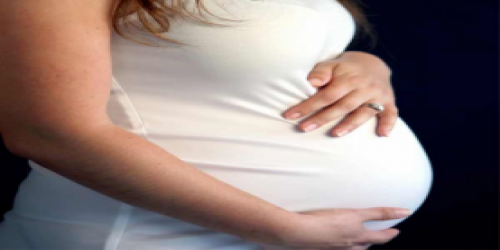5 Warning Symptoms of pre-eclampsia in Pregnancy

Eclampsia
is one of the dominant health complications like jaundice, high blood pressure
during pregnancy. Doctors call it pre-eclampsia or eclampsia which can cause
death to the mother.
Causes
of pre-eclampsia:
Common
causes that increase the risk of this complication include the first time of
being a mother, pregnancy below 20 years of age and over 40 years of age, high
blood pressure, more than one baby in the womb, diabetic issues, kidney
problems and inheritance. About 5% of pregnant women have the likelihood of
having pre-eclampsia, but unfortunately, such a complicacy does produce little
to almost no symptoms. Even if you feel well, chances are that you and your
baby might be endangered. Make sure to have your blood pressure and urinal
protein examined properly every time you go to a doctor.
The
most probable time for eclampsia to occur in a pregnant woman is after the 37th
week of her pregnancy. However, it might occur at other times too including the
second stage of pregnancy, during the delivery or even after the delivery,
especially 48 hours after delivery. At the beginning, it may occur at a
moderate or intense level, but it may increase either slowly or gradually with
time.
5
symptoms of pre-eclampsia:
Fluid
retention:
Fluid
retention is the likely symptom that leads to eclampsia. If you observe
anything like sudden accumulation of fluid under the skin of your face, eyes,
hands, heel and feet, you should go to the doctor immediately. Due to such
retention, weight gain becomes a likely incidence. If you gain an excess of 4
kilograms a week, you must inform your doctor. Remember, fluid retention is not
common in all women who experience eclampsia.
Severe
headache:
Severe
headache is another sign indicating the imminence of pre-eclampsia.
Problems
with eyesight:
Various
problems with the eyesight like double vision, fuzzy eyes, visibility of light
sparks or lines before eyes, weak eyesight and sensitivity to light indicate pre-eclampsia.
Stomach
pain:
Some
women vulnerable to pre-eclampsia may feel intense stomach pain.
Vomiting:
Being
affected by eclampsia, many women feel nauseated, and even they vomit.
Why
is pre-eclampsia dangerous during pregnancy?
Being
somehow apparently similar to the general issues of pregnancy in terms of
symptoms and effects, pre-eclampsia is often overlooked. If blood pressure runs
high and protein is present in your urine, eclampsia can be determined. If the
systolic blood pressure is equal to or higher than 140 and the diastolic
pressure is equal to or higher than 90, the doctor might ask you to undergo
other tests. The blood pressure being fluctuated too often requires to be
examined more often than once.
In
some women, some other symptoms may be visible which are known as HELP that
causes destruction or rupture to the red blood cells, a condition named
hemolysis. Further consequences include increase of enzyme in blood and
decrease in platelets, an agent that helps freeze the blood. Once identified,
pre-eclampsia needs to be kept under observation through blood test. Adequate
amount of rest and prescribed medicines can be taken to control blood pressure.
Women
with eclampsia are likely to give birth to dead babies. Frequent occurrence of
it causes hindrance to the circulation of blood and thus transportation of
oxygen to the baby. Moreover, some medicines prescribed to stop eclampsia may
cause death to the baby.
Things
to do on seeing the symptoms of eclampsia:
The
doctor may suggest a cesarean procedure if a little pre-eclampsia is noticed
after the 37th week of pregnancy and the condition of both the
mother and the child seem unfavorable.
If
the age of pregnancy is below 37 weeks and the condition of the mother and the
baby is stable, the doctor might suggest admission into the hospital or stay at
home with frequent blood test followed. You will be recommended to undergo
ultrasonography in order to notice the movement of the baby inside. Lack of
movements from the baby and increase of blood pressure in the mother require immediate
transfer of the mother to the hospital and quick delivery.
If
you have severe eclampsia, you will need to stay at the hospital for longer
under the observation of high risk specialist. To prevent eclampsia, magnesium
sulfate injection will be given through your veins. In addition, other medications
will be allowed if you have high blood pressure.
If
blood pressure is at high after 24 hours of the delivery, magnesium sulfate
injection may also be given along with other medications to take while at home.
Ways
to prevent pre-eclampsia:
Several
steps that can prevent such condition include regular antenatal and blood
checkups, pregnancy care, examination to identify fluid retention and protein
release through urine.
Contact our call center to consult
doctors at SuperMom for any children and maternity affairs from 9am to 5pm from
Sunday-Thursday (except Government holidays). Call at 08000-888-000.


